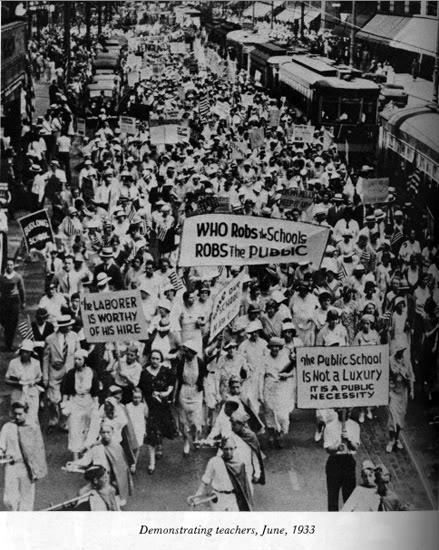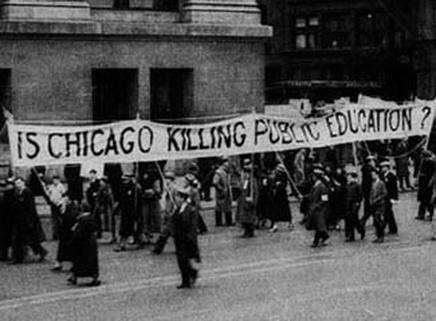The Property Tax Revolt
|
Before and during the 1930s, local governments were funded almost primarily their citizens' payment of property tax. However, as a result of the money-strapped time, property tax rates doubled over a period of three years.
In 1932, the Association of Real Estate Taxpayers in Chicago came together in one of the greatest tax revolts in American history. With such a large amount of angry homeowners refusing to pay their taxes, the city spiraled into a huge economic downturn nearly resulting in the city going broke. Nevertheless, the boycott of real estate tax payment wasn't the only event that sent the city spinning, many other enraged groups assembled in hope of some kind of compensation. Teachers went on strike against their dismal pay, a result of the lack of city funds consequent from the boycott of real estate tax. “According to the May 1933 Nation magazine, teachers faced dire poverty: “Homes have been lost. Families have suffered undernourishment, even hunger. Their life insurance cashed in, their savings gone, some teachers were driven to panhandling after school hours to get food” (The Chicago Teacher Revolt of 1933). |
Starting with the title of this article, a sense of severe anxiety and chaos is conveyed by the desperate teachers taking dramatic action to gain funds.
|


